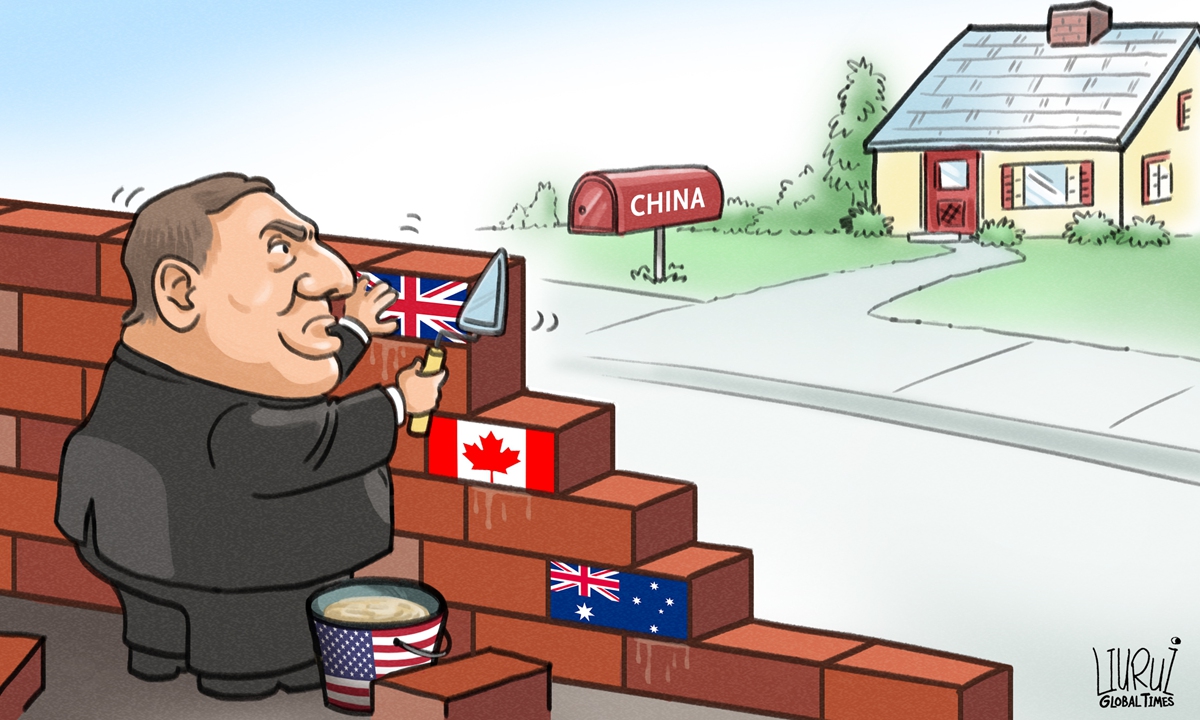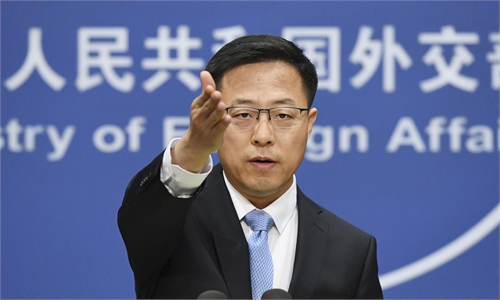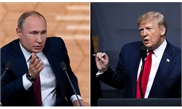China, Russia confront US-dominated world order over ‘unreasonable’ sanction threats on Iran

Coaxing US allies, relentlessly smearing China, promoting misinformation, Pompeo has gone to crazy extremes to attack China. Graphics:GT
Chinese analysts called the US' threat to sanction China and Russia "farcical" and "unreasonable," following the US' rare but embarrassing loss last week at the UN Security Council (UNSC) for trying to extend an arms embargo on Iran that expires in October. China and Russia's firm opposition to the embargo extension indicated that the two countries will play an increasingly important role in improving the US-dominated world order, analysts said.
Regarding the US' threat, Zhao Lijian, spokesperson of Chinese Foreign Ministry, said at the ministry's routine media briefing on Thursday that because the US has withdrawn itself from the 2015 Iran nuclear deal, it was not in a position to ask the UNSC to "snapback" sanctions, instead the overwhelming majority of the Security Council members and broad consensus of the international community will determine the relevant matters. He said that China firmly opposes the unilateral sanctions and the so-called "long arm jurisdiction" imposed by the US on other countries.
US Secretary of State Mike Pompeo was scheduled to travel to New York City on Thursday through until Friday to notify the UNSC that the US will initiate a process to restore UN sanctions on Iran. When asked if the US would target Russia and China with sanctions if they refuse to reimpose the sanctions, Pompeo told Fox News on Wednesday that the answer was "absolutely."
Pompeo's threat came after Russia and China voted against the US resolution to extend a 13-year-old arms embargo on Iran at the UNSC last week, while France, Germany and the UK abstained, which Pompeo called "really unfortunate."
Chinese analysts believed the US' attempt to "snapback" sanctions on Iran lacks any material legal basis and rationality, and the country's sanctions game was clearly "farcical" and "unreasonable," and won't help it achieve its purposes.
The US lost its right to propose a resolution on the Iran nuclear deal after it withdrew from the deal in 2018, Yang Xiyu, a senior research fellow at the China Institute of International Studies in Beijing, told the Global Times on Thursday.
Russia also believes that the US has no legal or political grounds to extend the embargo, and called it absurd, Russia Deputy Foreign Minister Sergei Ryabkov said on Thursday, according to Reuters.
Yang Xiyu said that the US may further impose sanctions on Chinese companies for arms sales to Iran if the US' embargo extension fails at the UNSC.
But China and Russia will not be intimidated and instead will take a firmer stance to block the US' unilateral sanctions, unlike European countries' abstention. This is another example that China and Russia have become two important countries that aim to improve the US-dominated world order and make it more balanced, inclusive and equal, analysts said.
In addition to Iran issue, China and Russia have also recently confronted Western countries head-on in a number of international issues, and the strategic partnership between China and Russia in facing the growing pressure from countries like the US will only get stronger, analysts said.
Amid the increasingly fierce global COVID-19 vaccine race, the US and other Western countries have continued to hype up the safety and efficacy issues regarding Russia's vaccine as well as smearing China for "stealing" the US' vaccine research information for merely political reasons.
China and Russia have instead unswervingly developed their own COVID-19 vaccines, with Russia registering the world's first COVID-19 vaccine and China taking the lead in research and development (R&D) for vaccines. Both countries have also planned to collaborate on future COVID-19 vaccine clinical trials.
The US tried to exclude China and Russia in a world order it dominated, and increasingly squeezed the strategic space of China and Russia, which forced China and Russia to form a strategic partnership to fight back, Li Haidong, a professor at the Institute of International Relations of the China Foreign Affairs University, told the Global Times on Thursday.
As the world is at the crossroads of transition between old and new international order, China and Russia, as well as many other countries, have held on to the consensus of building a multilateral, just and equal order, Li said, noting that China and Russia have hope for the new world order.



